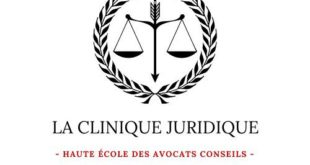Le Petit Juriste had the great privilege to interview Lady Hale of Richmond, the first and only woman in the Supreme Court of the United Kingdom.
Le Petit Juriste: Lady Hale, let me introduce you to our French readers: you are the Baroness Hale of Richmond, the Deputy President of the United Kingdom Supreme Court, the first and only woman in the Supreme Court (and so, the most senior female judge in the UK). These qualities and also your dedication to equality and human rights issues have made you one of the Court’s most popular and well known figures.
First of all, we should remind our French readers that the UK Constitution is not a single written document, more important than other primary legislation, but a set of documents and conventions. This is fundamental for understanding the role of the Supreme Court in the UK legal system. However, do you find it normal that this is the only European country that has not an entrenched constitution (i.e. it can be modify with a simple majority vote in Parliament)?
Lady Hale: All of that is normal, completely normal. There are two foundations of the UK Constitution. The first Parliament can make or unmake any law. The second: courts are there to ensure that the law is obeyed by everybody, including the government. So, we have both the Sovereignty of Parliament and the Rule of Law. These are our two guiding principles.
LPJ: Despite that, in 2002 Thoburn[1] case, Lord Justice Laws has said that there is a hierarchy of « constitutional statutes » (e.g. European Communities Act 1972, Bill of Rights…) that Parliament could only expressly repeal, and so are immune from implied repeal. So, in practice, are there some more important laws than other? Could this represent a guarantee replacing a non-entrenched constitution?
LH: Yes. This is a principle of statutory construction. It is the Courts’ job to interpret what Parliament has enacted and apply it, and we have a number of rules of statutory interpretation. The one in the Thoburn case is: if a statute is of constitutional significance, the courts will normally assume that Parliament did not intend to amend, modify or repeal it by implication. They will assume that if Parliament wanted to change the statute, it would do it expressly, in clear words. This Court has said something similar in HS2[2] case, in which it listed a number of constitutional statutes that are not modified except if much clearer language is used.
LPJ: Let’s move forward on the Supreme Court’s role. This court exists since 2009[3]. Before, the court of last resort for the UK was within the House of Lords in Westminster. Was the replacement of the Appellate Committee of the House of Lords with the Supreme Court a serious change or just a symbolic or even cosmetic operation? Have your powers changed since then?
LH: There was no change in our powers. Except that the jurisdiction to decide whether the actions of the Scottish parliament and government, the Northern Ireland parliament and government, the Welsh parliament and government — although they do not call them “parliament” —were within the powers given them by the UK Parliament was transferred from the Judicial Committee of the Privy Council to the Supreme Court by the Constitutional Reform Act 2005. This power was originally entrusted to the Judicial Committee of the Privy Council because it was thought that those cases might involve disputes between the devolved parliaments and the Westminster parliament, so it was thought wrong for members of the UK Parliament to decide them. Once the Appellate Committee of the House of Lords was replaced by the Supreme Court, we were seen as more independent — although we are the same judges wearing different hats! — and so it was logical for us to have the power to decide whether the devolved institutions are acting within their constitutional powers.
This was the only change in our powers, but we have changed more than place. Of course, the change of place had a significant role in the separation of powers. But this change gave us much better facilities and a much more suitable building; it has enabled us to develop the transparency of our proceedings and our relationship with the public. It has been a big change: we have an education program, our proceedings are televised, we put our judgments on YouTube.
People could come to Parliament, but you had to know how. It was not easy. When we gave judgments, it was in a curious ceremony which was completely incomprehensible to anybody who was not aware of what was happening. I can say that this change was a big change for the better.
LPJ: Unlike other constitutional or supreme courts, the UK Supreme Court cannot overturn primary legislation due to the doctrine of parliamentary sovereignty. From a French point of view, this sounds very strange because it would mean that the three powers of the State are not on an equal footing. How does the Supreme Court deal with this?
LH: This is true, but it is not a problem, because it is completely normal for us. The UK courts have never had the power to overturn Acts of Parliament. We do have, as I have mentioned, various approaches to interpreting Acts of Parliament. One of the most useful is the one contained in section 3 of the Human Rights Act 1998 by which we will assume that Parliament did not intend to interfere with fundamental rights and we will interpret the provision in a manner that is compatible with the European Convention. If Parliament does interfere with a fundamental right by clear words, we cannot overturn that provision but we can issue a declaration of incompatibility. That does not make the provision invalid but pushes the government to persuade Parliament to amend it. There is a fast track procedure under section 10 of the 1998 Act.
However, we do have the power to set aside primary legislation when it is inconsistent with European Union law under the European Communities Act 1972. The European Communities Act 1972 has given us a power that we did not have before. This is because the European Union cannot work as a union if different states apply EU Law differently or disregard it. We knew that when we joined— perhaps the public did not, but we lawyers knew it. Of course, Parliament can repeal the 1972 Act and there is nothing that we as a Court can do about that. It will depend on the result of the June referendum about the UK membership within the European Union.
LPJ: So, if we imagine that tomorrow Parliament enacts a law that repeals in very clear words all fundamental rights and make them unenforceable against the Crown, what can the Supreme Court do?
LH: If Parliament tells it very clearly, there is nothing that we could do about it. We can only say to Parliament what we think about it. But, beyond that, the difficult question is what courts can do if Parliament tries to exclude the courts’ control of the lawfulness of what government bodies have done. Because there is a principle that courts play a role as servants of Parliament in keeping the government and public bodies within the powers that Parliament has given to them, but what might happen if Parliament denied this power to the court? In the Anisminic case, Parliament said that the decisions of the Foreign Compensation Commission should not be subject to review in courts. The Appellate Committee of the House of Lords said “yes, but Parliament meant only valid decisions”. So, the Law Lords circumvented the exclusion clause that Parliament tried to impose on them. So, this is still a matter of interesting debate: how far the courts can go in interpreting the provisions that exclude or restrict their role to keep the government obey the law.
LPJ: We can see that, although courts do have legal instruments to check government, they only have very limited instruments to check Parliament’s work. So, who can check UK Parliament within the British constitution?
LH: The Electorate checks Parliament! Parliament is accountable to the people. If they do not like what Parliament does, they can change the control of Parliament. A second answer is, up to a point, the House of Lords. It acts as a limited check on what the House of Commons does, because the House of Lords subjects the work of the House of Commons to a close examination and attempts to identify and remedy the deficiencies. This is part of the great British constitution: the undemocratic body acts as check of the democratic body! So, besides the techniques of statutory interpretation used by courts, there only is political and not legal control over Parliament.
LPJ: What prevents courts challenging primary legislation (besides the exceptions accorded by Parliament itself under the ECA 1972 and the HRA 1998) is the central doctrine of parliamentary sovereignty. But, in the 2005 case Jackson v Attorney General[4], the House of Lords invoked some limits to Parliament’s legislative competence…
LH: You do not need to pay too much attention to that. I mean: it was not the ratio decidendi of the case. But different views were expressed as to whether any limit exist on what Parliament could do. Some judges were stronger about that: “, Parliament cannot subvert the Rule of Law”; others did not say anything about it. But it was not relevant to that case, they only were personal opinions expressed in what we call obiter dicta. They were not essential to the reasoning of the case, since the reasoning of the case was: The Hunting Act was a valid Act of Parliament, because Parliament Act 1949 could validly amend Parliament Act 1911. That is the ratio decidendi, end of the story. The remarks are just things people said… The strongest, I think, were said by Lord Hope who was a Scottish judge and Scots lawyers have never been very persuaded of the doctrine of Parliamentary sovereignty. So, there is a sort of doctrinal divergence… but I would not make too much of it.
LPJ: Having say that, do you think that, in future, the Supreme Court will appropriate to itself the power to strike down primary legislation that does not comply with the UK Constitution, like the US Supreme Court did in Marbury v Madison[5]?
LH: It could be after, long after I have gone. It is very difficult to conceive the circumstances in which the UK Supreme Court would do it; other than the discussed event in which Parliament tries to subvert the Rule of Law: that would be a great problem. Apart from that, it is the obvious logic of a constitution that curtails the power of Parliament — which the American constitution does when it says: “Congress shall make no law…”[6] — to have somebody with power to tell Parliament that what it has done is invalid. We do not have any such constitution; we do not have anything that says “Parliament shall make no law…”. So, unless until we have such a provision, it would be difficult for us to say that we are the body who tells Parliament what it can and cannot do. There is no theoretical limit on what UK Parliament can do.
LPJ: The Supreme Court is not the only court of last resort within the United Kingdom, because the Judicial Committee of the Privy Council still heard some cases (such as Commonwealth cases) in last instance, and the High Court of Justiciary remains the court of last resort for criminal cases in Scotland. Do you think the judicial role of the Privy Council has still a sense in the UK legal system? Would not it be better for the Supreme Court to be the only court of last instance?
LH: The High Court of Justiciary is the Scottish court of last resort for criminal cases, unless there is issue of devolution or compatibility with European law. If a criminal case raises such an issue, then it can come to us. For ordinary criminal cases, it is still the court of last resort in Scotland.
The Judicial Committee of the Privy Council is not a court of last resort for the United Kingdom, but for other countries, Commonwealth countries, a very small number of mainly very small places: Trinidad and Tobago, Jamaica, Mauritius, the Bahamas; and for the British Overseas Territories, like Gibraltar, the Cayman Islands, the Falkland Islands. It is also the court of last resort for Crown dependencies, which are not part of the United Kingdom for most purposes: Jersey, Guernsey, and the Isle of Man. They are independent countries up to a point, but there is a connection: The Crown. It is a very complicated relationship, but the Judicial Committee of the Privy Council is their court of last resort. On the other hand, the Judicial Committee of the Privy Council is no longer the court of last resort for some countries of which the Queen is still the head of State, such as Canada, New Zealand, Australia.
I would say that in many respects the Supreme Court and the Judicial Committee of the Privy Council already are a single court: they are composed by the same judges — wearing different hats —, they share the same building and administration, but they are separate institutions and we try to make that clear. when we sit as a court of last resort for a particular country, we fly the flag of the country from which the appeal comes. So, I think that there always will be a need for the Privy Council to maintain its judicial function, even if it will only concern a few small countries.
LPJ: Last March, in his Easter message, Prime Minister David Cameron said: “the UK is a Christian country and we are proud of it”. In fact, the UK is one of the few European countries that still have a state religion: the head of State, the Monarch, is also head of the state church. In France, since 1905, the State does not recognize any religion and the laïcité (that we could translate with secularism) is one of the most important values, so it is difficult for many to understand how can British tribunals and courts be regarded as neutral if they are part of a Christian establishment.
LH: That is a very interesting question. I have delivered quite few lectures and talks recently about this topic. Yes, we have in England — not in Scotland, Wales or Northern Ireland — an established church of which the Queen is the head. The main consequences are: 26 Church of England bishops are members of the House of Lords and the Church of England has a special role in relation to marriages. There used to be a common law offence of blasphemy, that was in place to punish attacks to the Church of England only. But we abolished it in 2008[7]. We do have against stirring up religious hatred, but they now protect all religions. The rest of our law protects all religions: we have freedom of religion under the HRA 1998, we have laws, prohibiting discrimination on the ground of religion under the Equality Act 2010, which both are the implementation in UK law of European law. So, the Church of England still maintains some privileges in well defined areas of law that do not affect others’ beliefs. We allow public money to be used to support schools that are faith based, as long as — I suppose — they teach the national curriculum. However, even if no law says that the UK is a secular country, we basically are so. We are probably, in practice, more secular than France! Religious observance is probably higher in France than in the UK, we are almost the least observant nation in Europe, though we have a state church! — we have a state religion but hardly anybody goes to church. It is an interesting typically English gap between the appearance and the reality.
LPJ: Thank you very much indeed, Lady Hale, for your precious contribution.
LH: Thank you for coming to the Supreme Court.
Interview conducted by Antonino Cento
on the 12nd April 2016
at the Supreme Court of the United Kingdom
[1] Thoburn v Sunderland City Council [2003] QB 151
[2] R (HS2 Action Alliance Ltd) v Secretary of State for Transport [2014] UKSC 3
[3] Constitutional Reform Act 2005
[4] R (Jackson) v Attorney General [2005] UKHL 56
[5] Marbury v. Madison, 5 U.S. 137 (1803)
[6] First Amendment to the United States Constitution
[7] Section 79 of the Criminal Justice and Immigration Act 2008
 Le petit juriste Site de la revue d'actualité juridique
Le petit juriste Site de la revue d'actualité juridique





